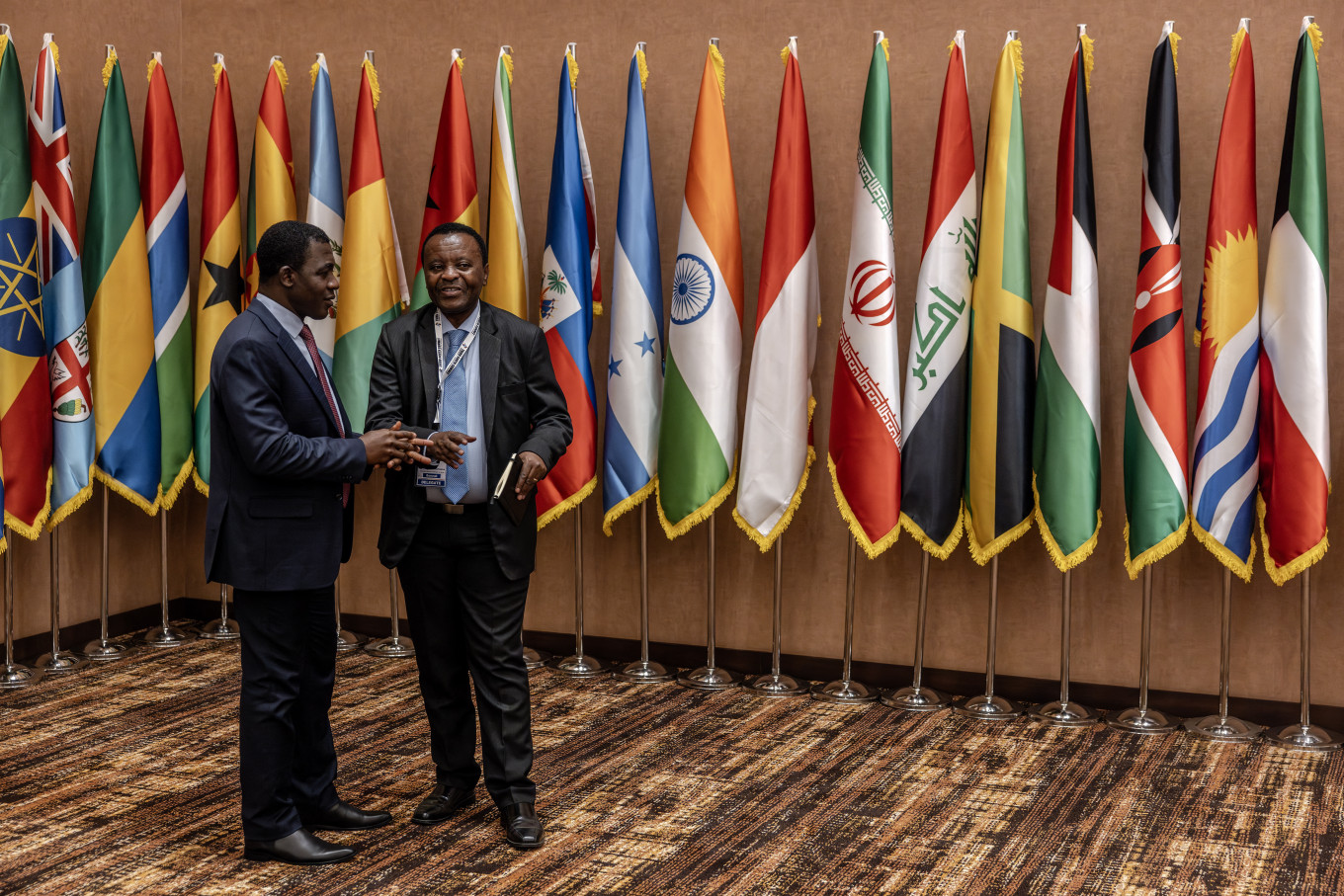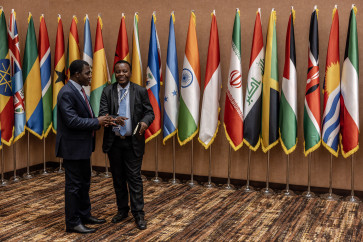Popular Reads
Top Results
Can't find what you're looking for?
View all search resultsPopular Reads
Top Results
Can't find what you're looking for?
View all search resultsIs the G77 the future of multilateralism?
In today’s shifting geopolitical landscape, few multilateral alliances are as steadfast, or as essential, as the Group of 77.
Change text size
Gift Premium Articles
to Anyone
I
n today’s shifting geopolitical landscape, few multilateral alliances are as steadfast, or as essential, as the Group of 77 (G77). Since its founding in 1964, the bloc has expanded to include 134 countries from Africa, Asia, Latin America and the Caribbean, collectively representing 80 percent of the world’s population and two-thirds of the United Nations’ member states.
But the G77 has struggled to define its role in a rapidly changing world. This was evident at the group’s recent policy forum in New York, the United States, commemorating its 60th anniversary. I had the privilege of speaking at this event, hosted by its Ugandan chair, which highlighted the G77’s long-term challenges while showcasing its immense potential and growing global influence.
Formed as a coalition of the world’s poorest countries, the G77 was conceived as a “weapon of the weak,” initially seeking to leverage its large membership to amplify the Global South’s voice in multilateral institutions. Yet, despite its size, the group has been unable to reshape the Westphalian state system and US-dominated postwar economic order, structures established long before many developing countries gained their independence.
The G77’s origins can be traced to the inaugural session of the UN Conference on Trade and Development (UNCTAD) in 1964. From the outset, the bloc has sought to challenge US-designed institutions like the General Agreement on Tariffs and Trade (GATT) and its successor, the World Trade Organization, and promote a more equitable international order. At its first ministerial summit in October 1967, the group adopted the Algiers Charter, which called for sweeping reforms to address the hardships faced by developing countries in a global economic system heavily skewed in favor of the West.
The Non-Aligned Movement (NAM), established in 1961, emerged as a natural ally to the G77, with many overlapping members and shared objectives. Both groups drove transformative advances in international law, championing the principle of self-determination, especially in Palestine and Western Sahara, while affirming the legitimacy of decolonization and armed resistance in Algeria, Mozambique, South Africa and Vietnam. They denounced South Africa’s apartheid system as a “crime against humanity”.
These efforts were inspired by the 1960 Declaration on the Granting of Independence to Colonial Countries and Peoples, a landmark UN resolution that became a cornerstone of the decolonization movement. During this period, an unspoken Afro-Arab alliance emerged, as African countries supported the Palestinian struggle for statehood and Arab governments backed black South Africans in their fight against white settler rule.
In its quest to challenge Western-dominated systems, the G77 has also cultivated a unique and enduring alliance with China. This relationship, shaped by heated North-South debates in the UN General Assembly, deepened after the G77 played a pivotal role in Taiwan’s 1971 expulsion from the UN, clearing the way for the People’s Republic to take its seat. Although not formally part of the G77, China remains the only permanent member of the Security Council to be regularly invited to its meetings.



















